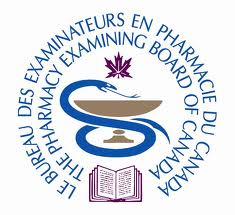Symptoms in the Pharmacy :Respiratory Problems (5)
When to refer (cough )
)
- Cough lasting 2 weeks or more and not improving
- Sputum (yellow, green, rusty or blood-stained) Chest pain
- Shortness of breath
- Wheezing
- Whooping cough or croup
- Recurrent nocturnal cough
- Suspected adverse drug reaction
- Failed medication
After a series of questions the pharmacist should be in a position to
decide whether treatment or referral is the best option.
Treatment timescale
Depending on the length of time the patient has had the cough and
once the pharmacist has recommended an appropriate treatment,
patients should see their doctor 2 weeks after the cough started if it
has not improved.
Management
Pharmacists are well aware of the debate about the clinical efficacy of
the cough remedies available OTC. In particular, the lack of scientific
evidence that expectorants have any effect and the use of combinations
with apparently contradictory ingredients have been cited.
However, many people who visit the pharmacy for advice do so
because they want some relief from their symptoms and, while the
effectiveness of cough remedies remains unproven, they can have a
useful placebo effect.
The choice of treatment depends on the type of cough. Suppressants
(e.g. pholcodine) are used to treat unproductive coughs, while expectorants
such as guaifenesin (guaiphenesin) are used in the treatment of
productive coughs. The pharmacist should check that the preparation
contains an appropriate dose, since some products contain sub therapeutic
amounts. Demulcents like Simple Linctus that soothe the throat
are particularly useful in children and pregnant women as they contain
no active ingredients.
The BNF gives the following guidance.
Expectorants : A simple expectorant mixture may serve a useful
: A simple expectorant mixture may serve a useful
placebo function and is inexpensive.
Suppressants : Where there is no identifiable cause (underlying disorder),
: Where there is no identifiable cause (underlying disorder),
cough suppressants may be useful; e.g. if sleep is disturbed.
Demulcents: Preparations such as simple linctus have the advantage
Preparations such as simple linctus have the advantage
of being harmless and inexpensive. Pediatric simple linctus is particularly
useful in children, and sugar-free versions are available.
Productive coughs should not be treated with cough suppressants
because the result is pooling and retention of mucus in the lungs and a
higher chance of infection, especially in chronic bronchitis.
There is no logic in using expectorants (which promote coughing)
and suppressants (which reduce coughing) together as they have opposing
effects. Therefore, products that contain both are not therapeutically
sound.



Comments
Thanks!